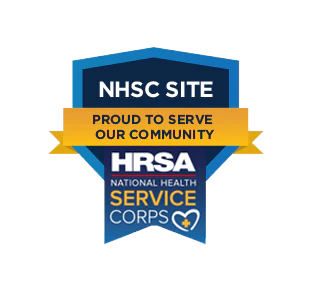
Our psychiatrist or Nurse Practitioner will assess your symptoms and help to determine what medication would be a good option in the treatment of your mental health concerns.
Contact Us Now
Comprehensive psychiatric evaluations are designed to collect the information needed to accurately diagnose a mental health problem, whether it’s an emotional, behavioral, or developmental disorder.
Contact Us Now
A relationship goes through numerous phases during its life cycle, and it is obvious for it to have a few rough patches.
Contact Us Now
In therapy, kids talk and learn how to work out their problems. Going to therapy helps them cope better, communicate better, and do better.
Contact Us Now
Individual treatment is often termed as psychotherapy, and is meant to help people with their emotional issues, which can range in order of their severity or intensity.
Contact Us Now
ABOUT US
Welcome to Mosaic Therapy
Choosing to come to in for behavioral health and wellness is a big decision. We want to make the process as easy and comfortable as possible. We have created a beautiful space where patients feel relaxed and receive highly personalized care.
We want to affirm you on your decision to work on becoming your best self. We would like to take a moment to introduce Mosaic Therapy and invite you to browse our website to learn more.
SERVICES PROVIDED
We are a full-service behavioral health and wellness practice of dedicated, experienced providers
- Medication Management
- Psychiatric Evaluation
- Functional and Integrative Medicine New!
- Depression Treatment
- Anxiety Treatment
- Trauma Treatment
- Health, Nutrition & Wellness
- Individual Treatment
- Couples Therapy
- Therapy for Children & Teens
- Family Therapy
- Divorce and Blended Families
- Post Partum Depression Group for Moms and Dads
Frequently Asked Questions
Psychotherapy is brief and focused on your current thoughts, feelings and life issues. Focusing on the past can help explain things in your life, but focusing on the present can help you cope with the present and prepare for the future. It helps with:
- Understand your illness
- Define and reach wellness goals
- Overcome fears or insecurities
- Addictive Behaviors
- Cope with stress
- Make sense of past traumatic experiences
- Separate your true personality from the mood swings caused by your illness
- Identify triggers that may worsen your symptoms
- Improve relationships with family and friends
- Establish a stable, dependable routine
- Develop a plan for coping with crises
- Understand why things bother you and what you can do about them
- End destructive habits such as drinking, using drugs, overspending or unhealthy sex
Because each person has different issues and goals for therapy, therapy will be different depending on the individual. We tailor our therapeutic approach to your specific needs. Before your initial appointment you may want to make a list of the things that are bothering you and the issues you would like help with. Bring it with you to your first appointment. You might include:
- Issues in your family or other relationships
- Symptoms like changes in eating or sleeping habits
- Anger, anxiety, irritability or troubling feelings
- Thoughts of hurting yourself
In your first few sessions, you will probably do most of the talking. You should tell the therapist why you are there and what you would like to get from therapy. Together, you and your therapist will make a list of short- and long-term goal. After a few sessions, your therapist may be able to give you an idea of how long therapy will take and when you can expect to see changes in your moods as well as you reporting to the therapist the changes you see in yourself.
TELETHERAPY
Schedule Your Online Session Today
Professional Career Development

Virtual - Webinars
Discover our virtual webinar series designed to help Behavioral Healthcare Professionals meet your licensing requirements with our high-quality continuing education. Earn continuing education units on your time schedule. We provide Board Approved Continuing Education. Enroll Today!

In-Person Workshops
Or if fulfilling your continuing education requirements in-person is your preference, we provide those as well. We have the team to keep your career moving forward. Our professionals provide high quality engaging and interactive continuing education events that support your career growth and development. Sign Up Now!
Upcoming CE Events
Ethics CEUs available in JUNE! We have TWO live ZOOM webinars for 3 Ceus Ethics - Clinical Practice: The Ethics, Dilemmas and the Law When: Friday June 7th 0900-1200 Cost $55.00 After registering, you will receive a confirmation email containing information about joining the webinar.
More Events
Zoom Webinar for 3 CEUs Clinical Practice: The Ethics, Dilemmas and the Law When: Friday June 21 2024 0900-1200 Cost $55.00 After registering, you will receive a confirmation email containing information about joining the webinar.

Our continuing education is board approved (LPC, LADC and LCSW) for in-person and webinars. Certificates will be emailed.




